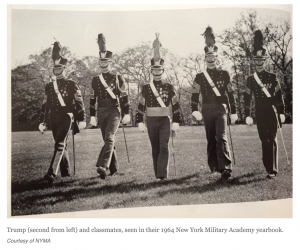How conflict over environmental regulations led to U.S. polarization and political paralysis
A 2020 poll on voter views about climate change by the Pew Trust found that “88% of Democratic-registered voters said stricter environmental laws and regulations are worth the cost. A 61% majority of GOP voters said such environmental laws cost too many jobs and hurt the economy”. The quote reflects both the split in the parties and the widespread assumption in the U.S. that efforts against global climate change require more rigorous regulations. Recent research observes that the U.S.’s labyrinthine regulatory system is an anomaly among advanced nations and has not led to an effective policy against climate change; it lies at the root of the U.S.’s current status as an environmental laggard in the campaign against climate change.
In the early 1970s, the U.S. had no conflict over environmental policy. The Clean Air and Clean Water Act Amendments of 1970 and 1972 were approved unanimously in the Senate en route to overwhelming passage in Congress. They and the NEPA Act of 1969 made rapid progress against pollution. The U.S. became the world leader in environmental policy. However, the revolutionary new laws contained seeds of future problems. The following list offers a troubling picture about subsequent progress in environmental management.
- World Bank data show that in 2018 Sweden was the world leader with 52% renewable to total energy use. The U.S. was at 10%, near the bottom of European nations.
- The U.S. landfills 50% of municipal waste, Sweden landfills 1%.
- The U.S. recycles a third of glass bottles; advanced European nations recycle 90%
- Power plants use about a third of produced energy for electricity. Over 11% of European power plants, but only around 1% of U.S. power plants employ cogeneration.
- The U.S.‘s uniquely labyrinthine regulatory/permitting system requires an average of 4.5 years for permitting major infrastructure projects; delays and cost overruns are typical for federally-assisted initiatives.
- Regulatory-associated NIMBY shackles innovative renewable energy developments. For example, 5,341 wind turbines operated in European waters in 2020. The U.S. has seven turbines in our highest wind-energy corridor along the Atlantic coast.
- The U.S. is dependent on foreign suppliers for renewable energy equipment and minerals critical for renewable energy development.
- Federal agencies are inhibited from employing proactive management techniques to minimize wildfires; carbon dioxide from millions of acres of burned national forests goes unnecessarily into the atmosphere.
- The U.S. has thousands of brownfields and many Superfund sites that could be remediated with advanced techniques. The Bureau of Mines was leading cleanup research when it was abolished in the 1990s. Charged with managing the sites, EPA is overburdened by mandated tasks and operates under constraints that offer little scope for entrepreneurship.
What happened to U.S. environmental effectiveness? A major answer is polarization over environmental regulations. The drastic impact of 1970s environmental laws on the economy aroused antagonism in the business community. Conflict over environmental policy widened to political polarization between environmentalists and U.S. industry and their respective political supporters in the 1980s. Global climate change concern subsequently intensified conflict. A prominent environmental scientist’s 2021 book is titled The New Climate War and openly labels corporations as the enemy. While not monolithic, much of industry and political supporters quietly reciprocate environmentalist hostility. This condition is incompatible with progress. Industry (not academic activists or their political supporters) builds electrical grids – a point noted by Fred Krupp, president of the Environmental Defense Fund.
Radicalization has led each side in the conflict to automatically oppose the goals of the other. As a result, neither side achieves its goals. Over 50% of Republicans in Congress were recently claimed to be climate deniers. The strategy of leading environmental organizations like the Sierra Club and Natural Resources Defense Council has been to shut down fossil fuel production or transportation wherever possible under the assumption that this will speed transformation to boutique renewables – solar and wind energy. They oppose backup nuclear power, biomass energy, and even hydropower – which together dominate current U.S. renewable energy production. They are skeptical of carbon sequestration (geological burial of CO2) because it could encourage continuation of fossil fuel production. Besides stoking counterhostility, the campaign against “dirty” energy industries that will remain critical to society well into the future diverts progressive younger talent from seeking leadership positions in fossil fuel and related industries.
Risks of overzealous campaigns. Besides the European fuel crisis created by Russia’s attack on Ukraine, if shutdowns like the Keystone and Dakota pipelines, lawsuits like those challenging national maintenance of oil and gas pipelines, and blockage of LNG terminals continue to exceed progress in replacing fossil fuels, they could lead to stranded financial and technical resources, supply interruption, and major resumption of fuel imports. Steep price rises could sour public opinion against proactive environmental measures. They would risk future ENRONs, companies playing the environmental game with less than admirable motives.
Outdated U.S. regulatory and permitting systems vs. European policies. The U.S.’s revolutionary environmental statutes date from 1969 through the 1970s. Polarization and Congressional gridlock have frozen in place policies designed for earlier times and conditions. U.S. policies contrast with cooperative environmental policies adopted by European nations in the early 1990s. Europeans are now world leaders, whereas the U.S. is a laggard in environmental policy and performance.
Germany’s ingenious feed-in tariff, initiated by the Green Party, exponentially increased renewable energy development without front-end government investments. Denmark took an aggressive approach to wind energy development, exploiting the country’s flatness and high wind energies. It became the world leader in wind turbine production. Once alternative energy capacity was sufficiently developed, DONG (Danish Oil and Natural Gas Company) divested itself of oil and gas interests and transitioned entirely into offshore wind energy development. The new entity, Ørsted, is the primary contractor for proposed new offshore wind developments off the U.S. Northeast coast.
A better approach. Complex environmental regulatory/permitting systems introduced in the 1970s were effective in controlling environmental pollution. However, they subsequently proved equally effective in inhibiting infrastructure projects and renewable energy development. Rather than applying stricter regulations or seeking to weaken enforcement of existing laws, the U.S. could benefit by considering the superior performance of European environmental policies and revisiting the U.S.’s 40-year-old environmental management system.

